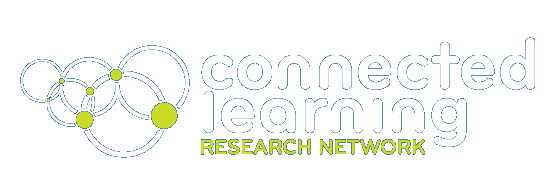The Powerful Combination of Interests and Peer Culture
April 5, 2014
PROJECTS: Leveling Up
PRINCIPLES: Interest-powered, Peer-supported, Shared purpose
TAGS: Connected Learning, eSports, Fanfiction, interest-driven, Peers, Ravelry, StarCraft II, WWE
The connected learning model emphasizes the importance of peer culture and interests in fueling members’ participation and learning in the rich activities and opportunities these communities create. In interest-driven communities, it is the passion or interest that leads people into joining the community (Gee and Hayes 2010). As a researcher who has focused on interest-driven communities, I sometimes take this for granted. But the depth of what this means to members – that they are able to find a community of others who share those passions – sometimes needs to be called out. In this blog entry, I will highlight how important it is to participants that they have communities that understand and embrace their passions.
In interest-driven communities, peer culture and interests combine to create a home for members – a home they often have a difficult time finding elsewhere. In the wrestling community, several people said that they did not have a local community that supported their wrestling interests. One participant said that wrestling was viewed negatively in his area, and that, “no one that I know likes WWE as they see it as being ‘childish’ or ‘immature.’”
Another wrestling fan said that although conversations sometimes revealed peoples’ wrestling interests, it was an interest that most people kept to themselves: “For the most part, WWE fans (or any pro wrestling fans) around here seem to be in the closet.”
Similarly, several fans of One Direction (1D) said that their fan fiction writing was not something they felt comfortable telling others about. One participant said that although she written quite a bit, she did not feel comfortable telling her teachers about it because they “wouldn’t get it plus they would ask questions.”
Even in social media, the participant said there is hostility towards 1D:
there are people on there that we don’t so much want to see us fan girling over one direction because they will judge so we tend to stick to websites where we know we are in good company
She and other 1D fans carefully choose where they reveal and indulge in their fan interests.
Even a few of the fiber crafters at Hogwarts at Ravelry said that others did not understand their interest. One knitter said that her local friends even teased her over her knitting, calling her a “grandma.”
For many of the participants of the communities we have looked at, they have a difficult time finding local communities where their interests are understood and supported. At home, in school, and even amongst their local friends they feel they cannot reveal their passions, let alone visibly pursue or advance them.
Within their interest communities, however, things are different. “We all belong there,” said participant about Hogwarts at Ravelry. These communities “get” them. Within these groups, participants’ passions are not just acknowledged – they are valued, affirmed, and supported. When a One Direction fan creates a .gif featuring her favorite images, her peers within the group are excited about her production skills but also about the content of the .gif. They can appreciate it on several levels. When Starcraft II (SC2) players attend tournaments, they are surrounded by people who are just as excited about the game play, teetering on the edges of their seats as they watch a good match. One player describes a moment of feeling connected with the community as he watched his first livestream of a tournament:
I watched, I tuned in – this is the first live stream I ever watched of a tournament. It has to be my third overall live stream. And that absolutely just – that was having – I can’t even emphasize how addicted that made me to StarCraft as a game. I saw that and I was like, this is it. This is the game that I’m going to play. This is the community that I want to be a part of and this is what I want to do for a really long time
Another SC2 player describes the physical sensation of butterflies in his stomach as he plays with his peers:
Once you become a team, you’re a manager or a player, you realize, ‘I’m getting butterflies in my stomach because I have to play for my team and I don’t want to let them down.’
Through these quotes, we can see that the major appeal of these communities for members is not just the activities, resources, or opportunities – it’s about being a part of a group who share the same passion and commitment for their interests. It is powerful to be in a peer culture with others who share your passion. It is “addicting.” For one wrestling participant, finding the wrestling group helped affirm his passion and pursue it:
It brought my confidence up a little to be honest, at first I was like “do people feel I am stupid for liking WWE etc” but when I found out about WWE Forums, knowing there were loads of people my age, I boosted my confidence in liking WWE if you understand what I mean.
One wrestling participant sums up the importance of finding an interest-driven home, not just for his passion but also for his learning and advancement in that interest:
My involvement in Over the Ropes has allowed me to express myself about a lot of things or topics that I can’t really talk to people about around where I live due to lack of interest. Learning wise, I have learned a lot about the WWE, other wrestling, and just general knowledge topics as well. I’ve learned a lot of new things that I didn’t know before I registered on Over the Ropes. Most of them just being WWE-related topics. As far as learning things that have helped me outside of the community… writing for the federation for a long time has definitely greatly increased my creativity, as well as my grammar.
The connected learning model recognizes the importance and power of interests and peer culture for affirming passions, motivating learning, and driving participation in activities, production, and opportunities. And participants’ words reiterate the importance of building bridges and supporting connections. How many opportunities are missed when young people who feel they have to “closet” their interests, worry about being perceived as “stupid” for pursuing them, or feel they have to carefully pick where they express those interests because of “hate?” In contrast, let us recognize the importance of passions for driving participation and the power of peer culture in affirming and supporting, nourishing, growing, and harvesting those interests.
References
Gee, J.P. and E. Hayes. (2010). Women and gaming: The Sims and 21st century learning. New York: Palgrave Macmillan.


